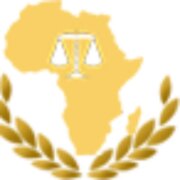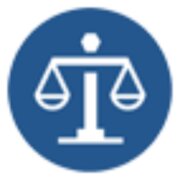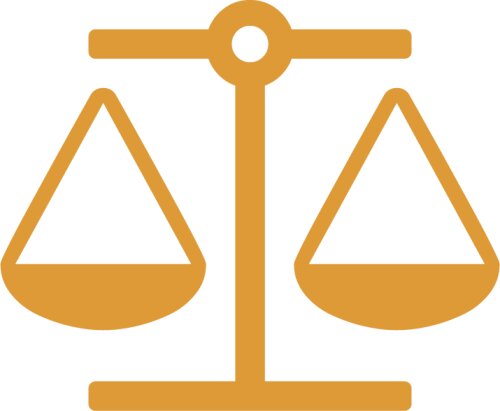Best Fintech Lawyers in DR Congo
Share your needs with us, get contacted by law firms.
Free. Takes 2 min.
Or refine your search by selecting a city:
List of the best lawyers in DR Congo
About Fintech Law in DR Congo
Fintech, or financial technology, is a burgeoning industry in the Democratic Republic of Congo (DRC), offering innovative solutions for the financial sector through technology. DRC's fintech ecosystem is primarily focused on mobile payment solutions due to the limited reach of traditional banking infrastructure and the widespread use of mobile phones. The government and regulatory authorities recognize the potential of fintech to enhance financial inclusion and are starting to develop a legal framework to support the industry's growth while ensuring consumer protection and security. However, the regulatory environment is still evolving, and businesses often need to navigate a complex legal landscape.
Why You May Need a Lawyer
Engaging a lawyer specialized in fintech law in DRC can be crucial for several reasons:
- Regulatory Compliance: Ensuring your fintech company adheres to local laws and regulations is essential for avoiding legal penalties and ensuring operational smoothness.
- Drafting Contracts: Lawyers can help draft contracts and agreements with clients, partners, and service providers that protect your interests.
- Licensing and Permits: Navigating the requirements for obtaining necessary licenses and permits to operate legally in the fintech space can be complex.
- Data Protection and Privacy: Understanding and implementing best practices related to data protection and privacy regulations is critical, especially given the sensitivity of financial data.
- Dispute Resolution: Lawyers can assist in resolving disputes that may arise with customers, partners, or regulatory bodies.
Local Laws Overview
Key aspects of local laws in DRC relevant to fintech include:
- Financial Regulations: The Central Bank of Congo (Banque Centrale du Congo) regulates the financial sector, including fintech activities. Companies must comply with regulations regarding financial transactions and anti-money laundering.
- Data Privacy Laws: Although DRC does not have comprehensive data protection legislation, companies must adhere to general principles of consumer protection and bank confidentiality.
- Electronic Transactions: Laws regarding electronic signatures and digital transactions are emerging, impacting how fintech companies process transactions and validate agreements.
- Tax Compliance: Fintech companies must comply with local taxation laws, which can affect how financial transactions are recorded and reported.
- Consumer Protection: Ensuring that consumer rights are respected in financial transactions is a focus area for government regulation that fintech companies must follow.
Frequently Asked Questions
What is the current legal framework for fintech in DRC?
The legal framework is developing as fintech grows. Key regulators include the Central Bank of Congo, which oversees financial transactions, and various laws concerning electronic transactions and consumer protection.
Do I need a license to start a fintech company in DRC?
Yes, fintech companies generally require a license from regulatory bodies such as the Central Bank of Congo to operate legally. The type of license depends on the specific financial services provided.
How are mobile payments regulated in DRC?
Mobile payments fall under the supervision of the Central Bank, which sets standards to ensure security and reliability in the digital financial ecosystem.
What consumer protection laws apply to fintech in DRC?
General consumer protection laws apply, focusing on the fairness, transparency, and privacy of financial services offered to consumers.
How is data privacy handled for fintech companies in DRC?
While there is no comprehensive data protection law, companies must employ best practices to protect customer data and comply with general privacy guidelines.
Can a foreign fintech company operate in DRC?
Yes, but they must comply with local laws, including regulatory approvals and partnerships with local banks or mobile operators as needed.
What are the risks of not complying with fintech regulations?
Non-compliance can result in fines, legal actions, or the revocation of licenses, severely impacting business operations.
Is there support available for fintech startups in DRC?
Various organizations, including international NGOs and local business incubators, provide support and resources for fintech startups in DRC.
How can I resolve a dispute with a fintech company in DRC?
Disputes can be resolved through negotiation, mediation, or legal action, depending on the situation. Engaging with a lawyer can help navigate the best path forward.
What future changes are expected in fintech regulation in DRC?
The regulatory framework is expected to evolve to address technological advancements and enhance consumer protection, requiring companies to stay informed of ongoing changes.
Additional Resources
For further assistance and resources related to fintech in DRC, consider reaching out to the following:
- Central Bank of Congo: Primary regulator for financial and fintech activities.
- DRC Ministry of Finance: Provides updates on economic and financial guidelines.
- Local Business Incubators: Organizations like Ingenious City provide support for tech startups.
- International Development Agencies: Groups like the World Bank and IFC offer resources and support for financial innovation.
Next Steps
If you require legal assistance in the fintech sector, here are some steps to consider:
- Consult with a Legal Professional: Seek advice from lawyers specializing in fintech to understand your legal obligations.
- Stay Informed: Keep yourself updated with the latest developments in fintech regulations in DRC.
- Join Fintech Networks: Engaging with industry groups can provide insights and resources.
- Seek Regulatory Guidance: Contact local regulatory authorities for clarification on specific regulations or compliance requirements.
Lawzana helps you find the best lawyers and law firms in DR Congo through a curated and pre-screened list of qualified legal professionals. Our platform offers rankings and detailed profiles of attorneys and law firms, allowing you to compare based on practice areas, including Fintech, experience, and client feedback.
Each profile includes a description of the firm's areas of practice, client reviews, team members and partners, year of establishment, spoken languages, office locations, contact information, social media presence, and any published articles or resources. Most firms on our platform speak English and are experienced in both local and international legal matters.
Get a quote from top-rated law firms in DR Congo — quickly, securely, and without unnecessary hassle.
Disclaimer:
The information provided on this page is for general informational purposes only and does not constitute legal advice. While we strive to ensure the accuracy and relevance of the content, legal information may change over time, and interpretations of the law can vary. You should always consult with a qualified legal professional for advice specific to your situation.
We disclaim all liability for actions taken or not taken based on the content of this page. If you believe any information is incorrect or outdated, please contact us, and we will review and update it where appropriate.
Browse fintech law firms by city in DR Congo
Refine your search by selecting a city.












